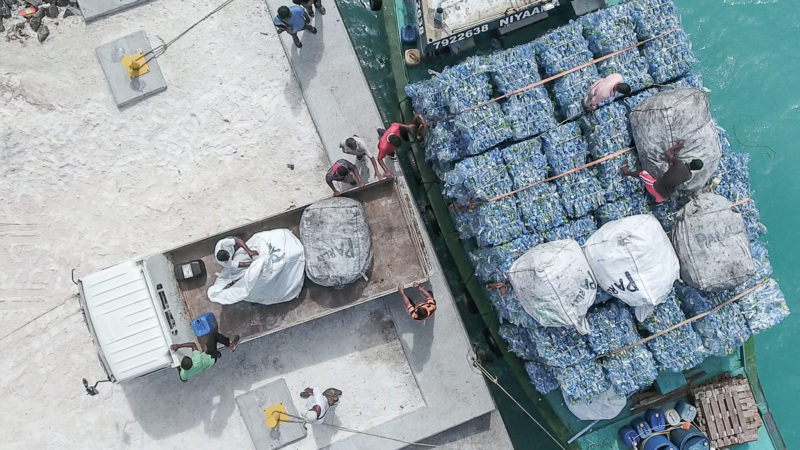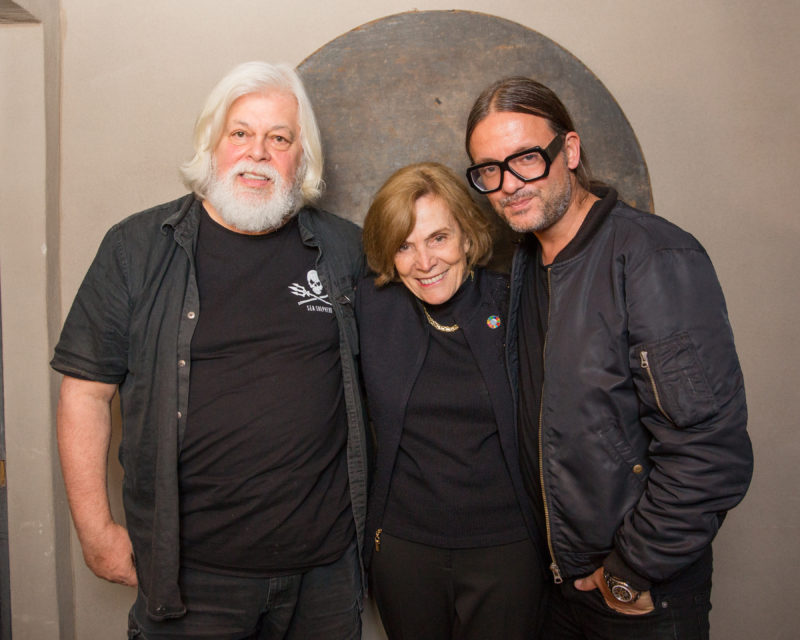In this series of articles, we’ll profile conservation organizations focused on ocean protection. Today we’re chatting with Cyrill Gutsch, Founder of Parley for the Oceans.
What is your organization doing?
Parley for the Oceans is a network and space where creators, thinkers, and leaders from across all levels — the private sector, government, creative industries, and individuals — come together to raise awareness for the beauty and fragility of our oceans and collaborate on strategies that can end their destruction.
Headquartered in New York, Parley is known for renaming sustainability into ‘Eco Innovation.’
We realize this concept through high-caliber collaborations and the introduction of Ocean Plastic. This range of premium materials for the sports, fashion and luxury industries is made from up-cycled marine-plastic debris.
Recognizing the complexity of the threats to our oceans, Parley for the Oceans set forth a new approach. Creative collaboration and eco-innovation drive our strategy, since the oceans generate every second breath we take. The strategy — Parley AIR: Avoid, Intercept, Redesign — is shifting the environmental conversation to one of positivity. It’s therefore driving change across industry, government, and in the creative communities that mold reality.
Parley is also known for projects that meld the worlds of art and conservation, like Doug Aitken x Parley: Underwater Pavilions. Visitors had to go underwater to explore this immersive art installation off the coast of Catalina Island.
How did it start?
Designer and strategist Cyrill Gutsch founded Parley in 2012 after he met Captain Paul Watson of Sea Shepherd Conservation Society. Through Paul, he learned that if the oceans die, we die. And the oceans are in fact dying. At the time, the expected deadline for the predicted collapse of all commercial fisheries was 2048. But now, leading scientists see the end of most sea life happening in the next 10 years. Feeling the weight of responsibility and refusing to accept the reality of a dead ocean, Cyrill decided to dedicate his career to the ocean. He made the oceans his most important client and their protection his biggest project. And so he created Parley to provide a network for others to have their own transformative perspective shifts.
How many people are involved and what are their roles?
Adidas became a founding member of Parley in 2015. Since then, leading brands Corona (AB-InBev) and Stella McCartney have stepped up to bring change to the beverage and fashion industries. The ambassadors, supporters, speakers, and partners comprising the growing Parley movement include world-renowned oceanographers, artists and designers, scientists, NASA astronauts and astrophysicists, explorers, actors, activists, musicians, surfers and more. Led by creativity and collaboration, the Parley community is an inclusive one. The community invites you to define your role within the movement, as it’s one we are creating together.

What are the main actions and/or areas of focus?
The ocean faces many complex and interconnected threats. Parley is focusing first on the issue of marine-plastic pollution. Although often unintentionally, we all contribute to this threat in a tangible way in our everyday lives.
Parley understands current plastic is a design failure, seeing the long-term solution for marine-plastic pollution in the redesign of the harmful material. In the meantime, Parley created a catalyst innovation that provides an immediate replacement for new, virgin plastic: Ocean Plastic. Together with its partners, in the last five years Parley raised awareness for the issue, boosted the general image of recycling and established the first global supply chain for marine-plastic debris. Additionally, Parley created a funding mechanism that financially allows the implementation of the Parley AIR Strategy in four key areas: communication and education, direct impact, research and development, and eco-innovation.
Parley AIR Strategy
The strategy is simple and easily scales across private households, governments and corporations. The name “Parley AIR” also stands for three actions:
A = Avoid plastic
- “Avoid” includes initiatives to educate people on reducing plastic use, how to avoid unnecessary plastics and the value of replacing new, virgin plastic with Ocean Plastic materials made from up-cycled marine debris. Consequently, through Parley Talks, ocean experts educate youth, creators, thinkers and leaders to inspire action. So this education phase acts as the first step toward change.
I = Intercept plastic waste
- “Intercept” is a comprehensive approach to collect existing waste, using various methods from high seas to coastlines, diverting plastics from landfills and preventing them from entering the oceans in the first place. It is difficult and expensive to get plastic trash out of the open sea, where it breaks into tiny pieces and only a small percentage sits at the surface. Parley instead is focusing on shorelines and beaches with its global network of partners and operations.
R = Redesign plastic materials and products
- “Redesign” addresses innovation around materials, products and new ways of using them. The original vision was to turn marine-plastic debris into an opportunity, making it an attractive alternative to virgin plastic with the name “Ocean Plastic.” Parley successfully introduced this material to art, fashion and sports communities, setting a trend and new standard for using recycled materials. After establishing a global network with certified Parley Supply Chain partners comprised of recycling companies, yarn and fabric makers, Parley can work toward its most challenging goal: developing new materials to replace plastic for good.
How can people help?
Take the Parley AIR pledge, and then share your reasons for protecting the oceans.


